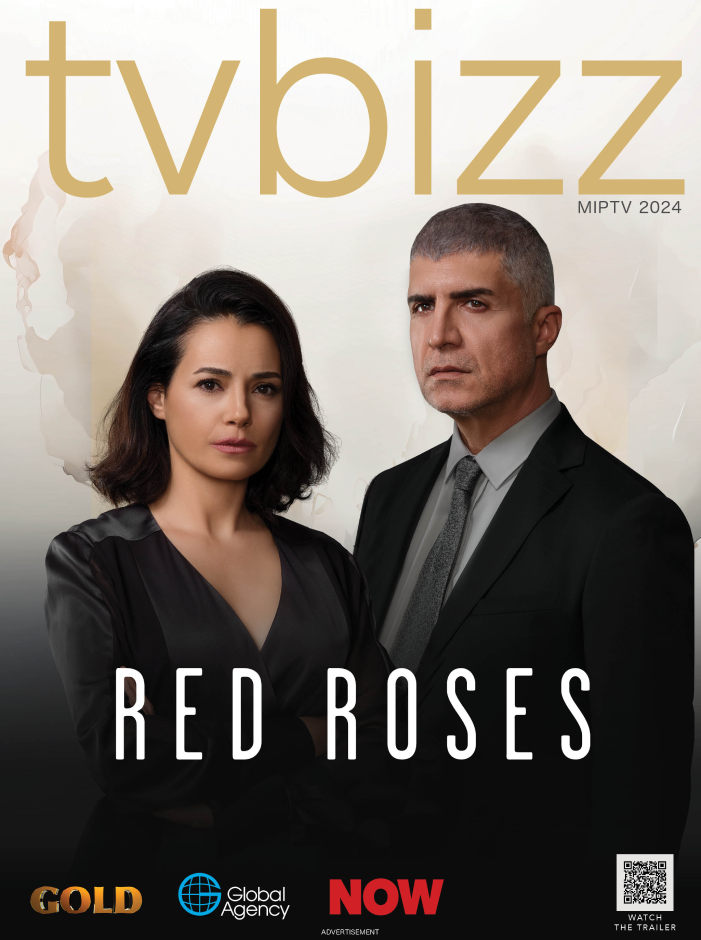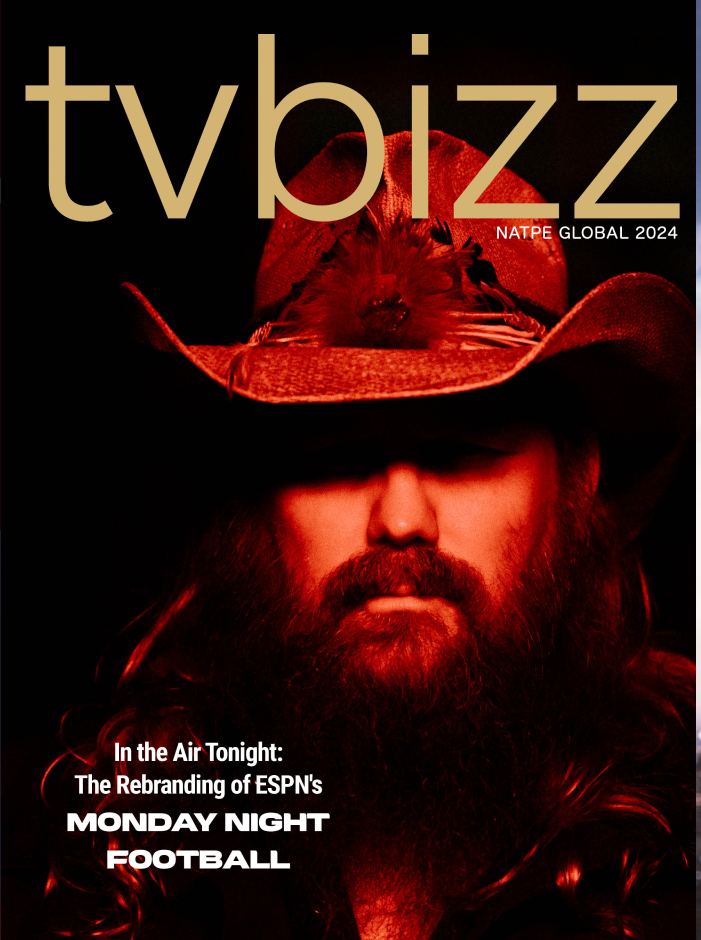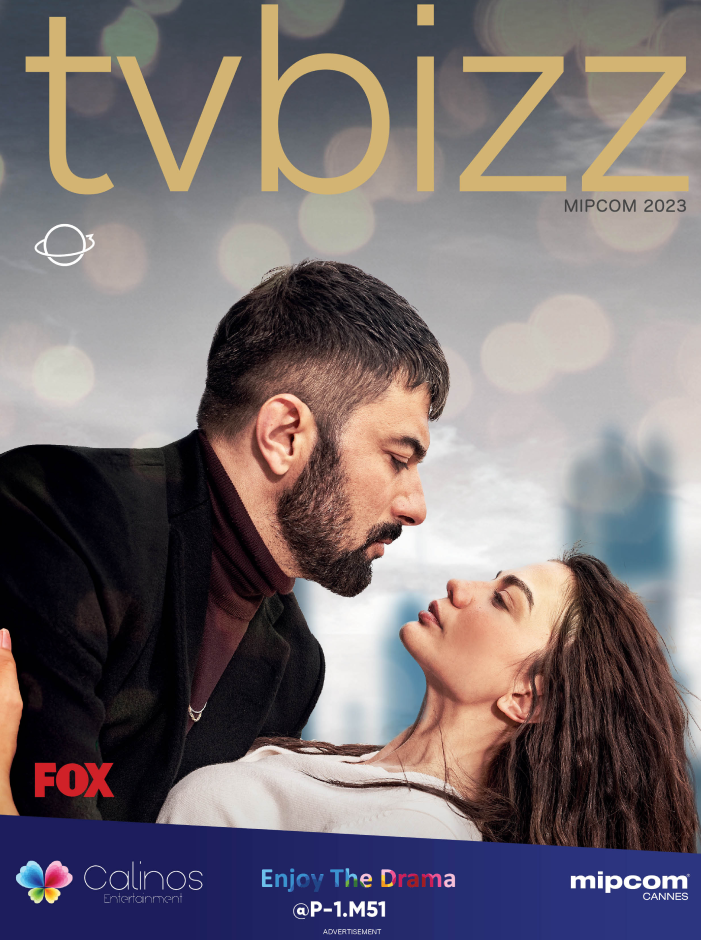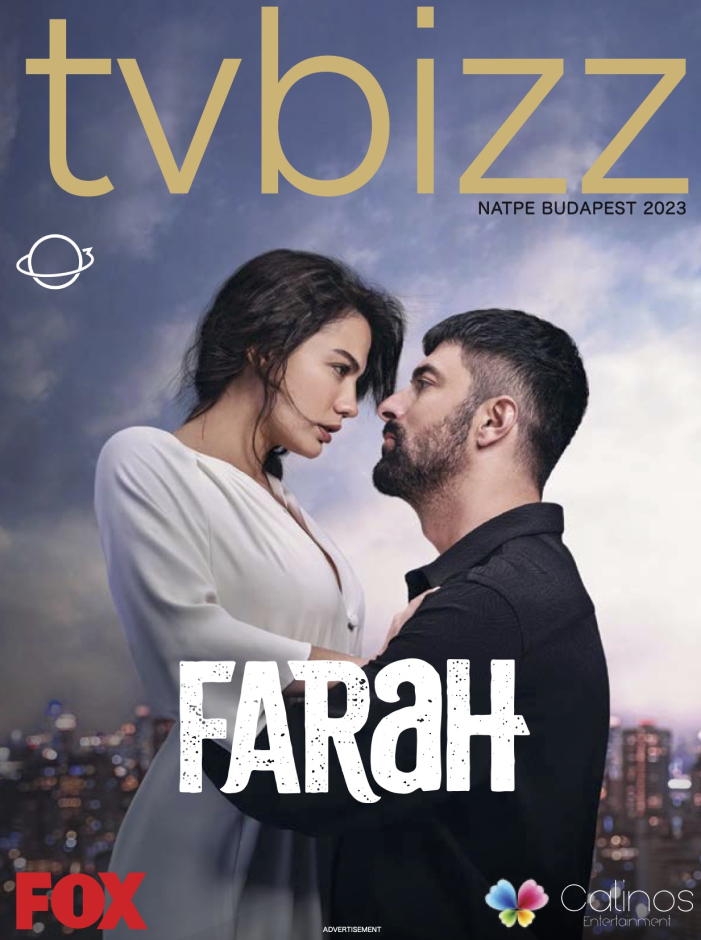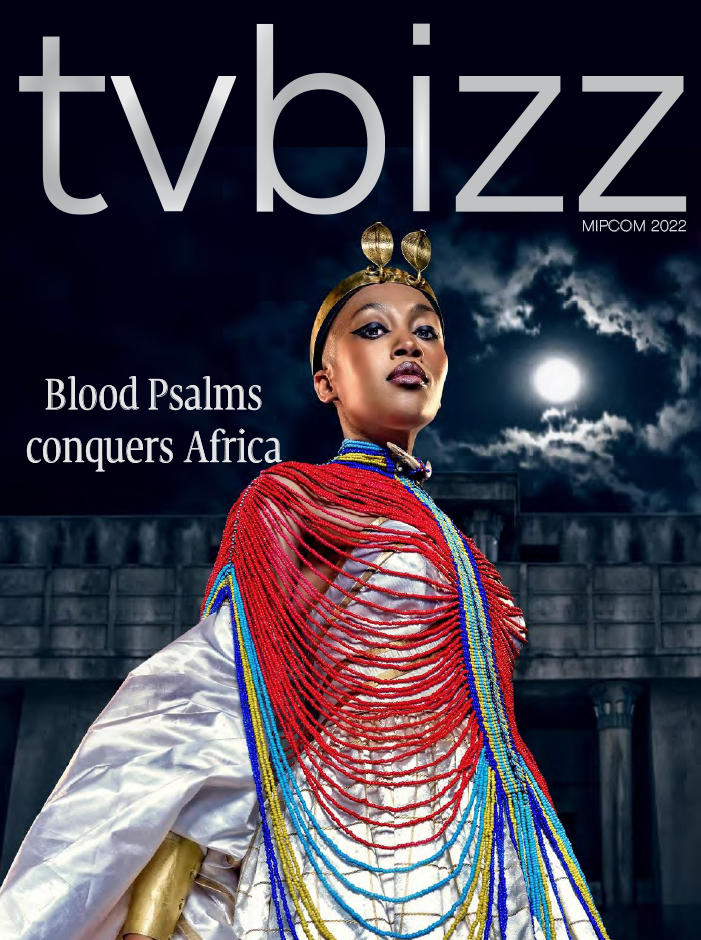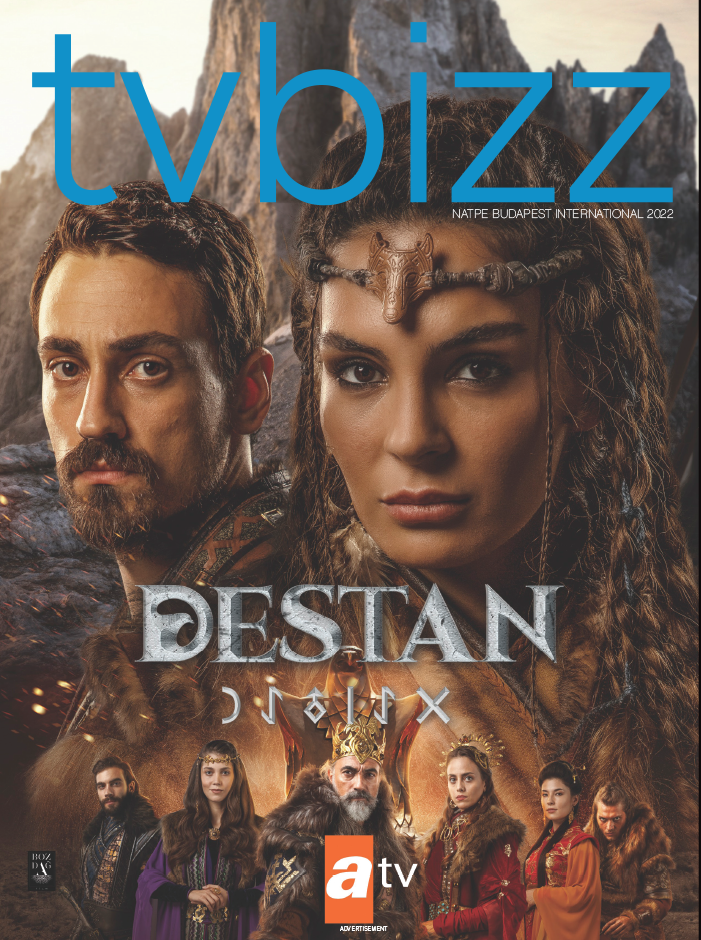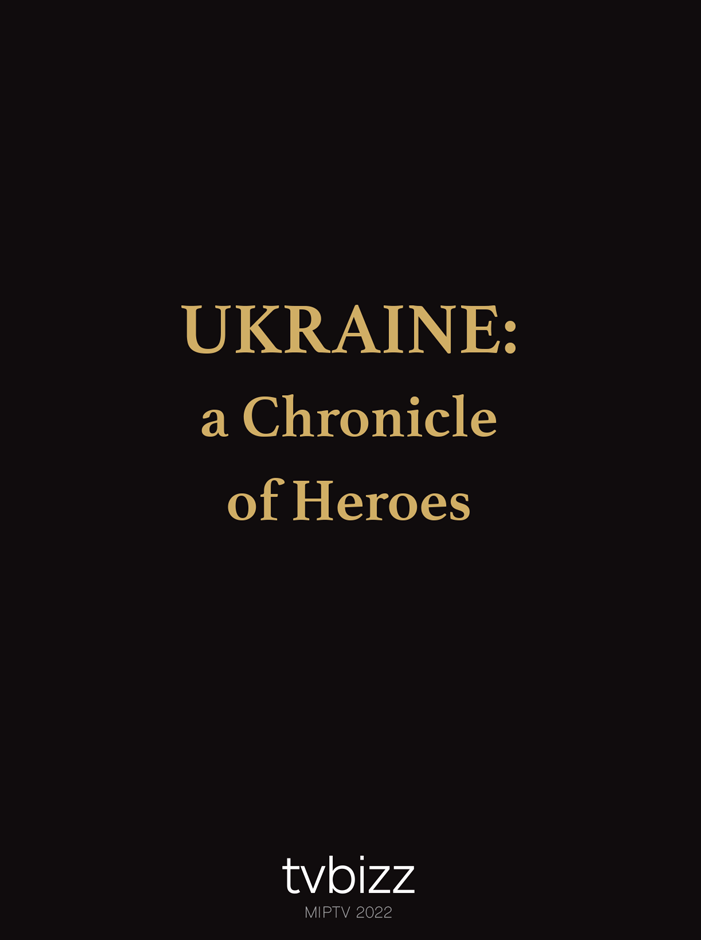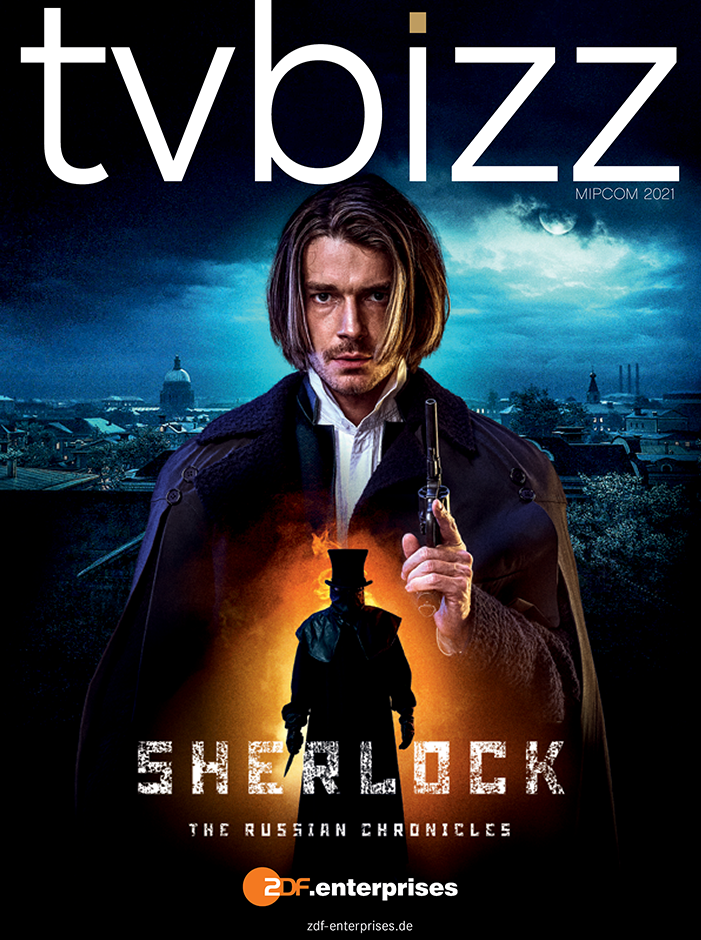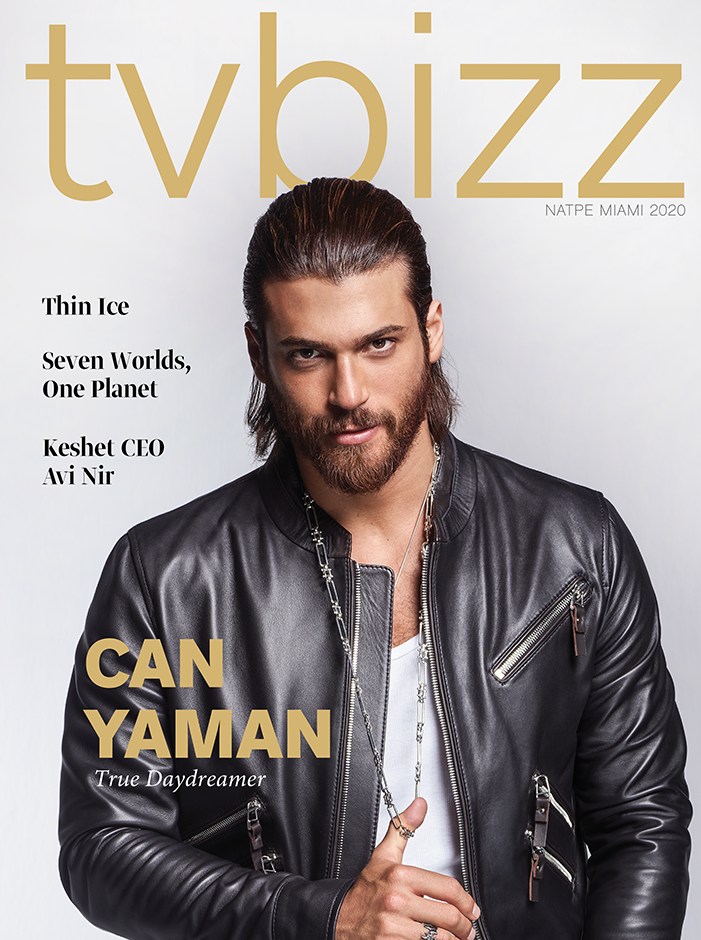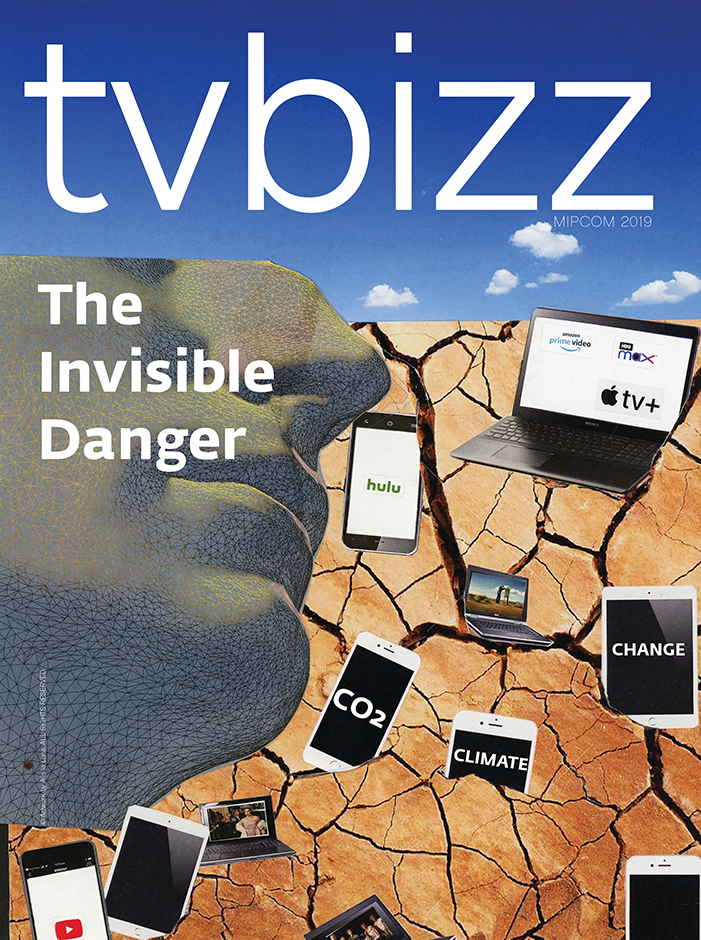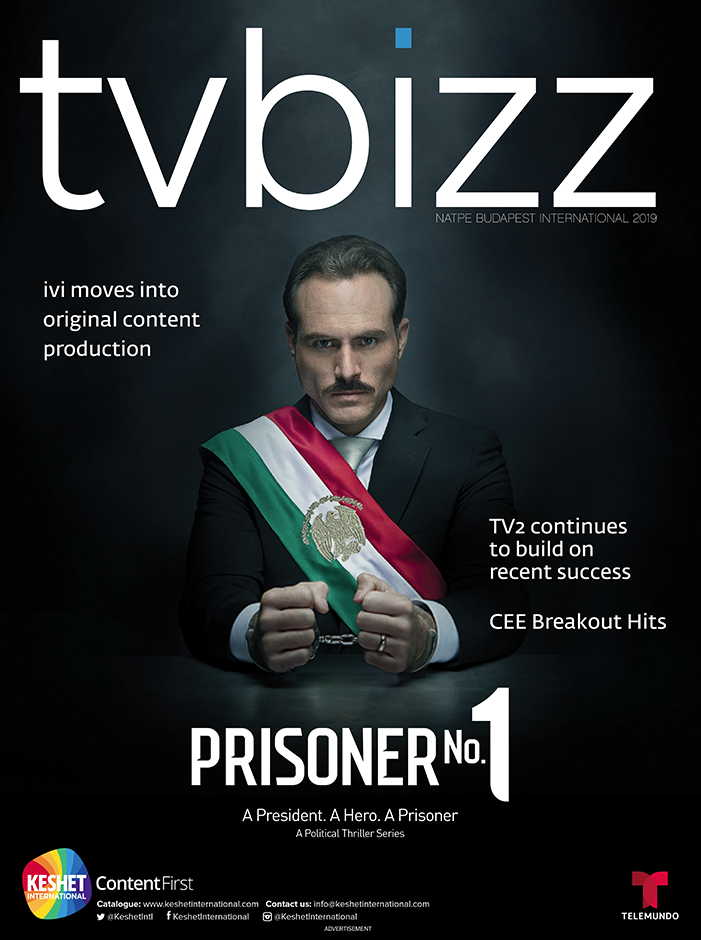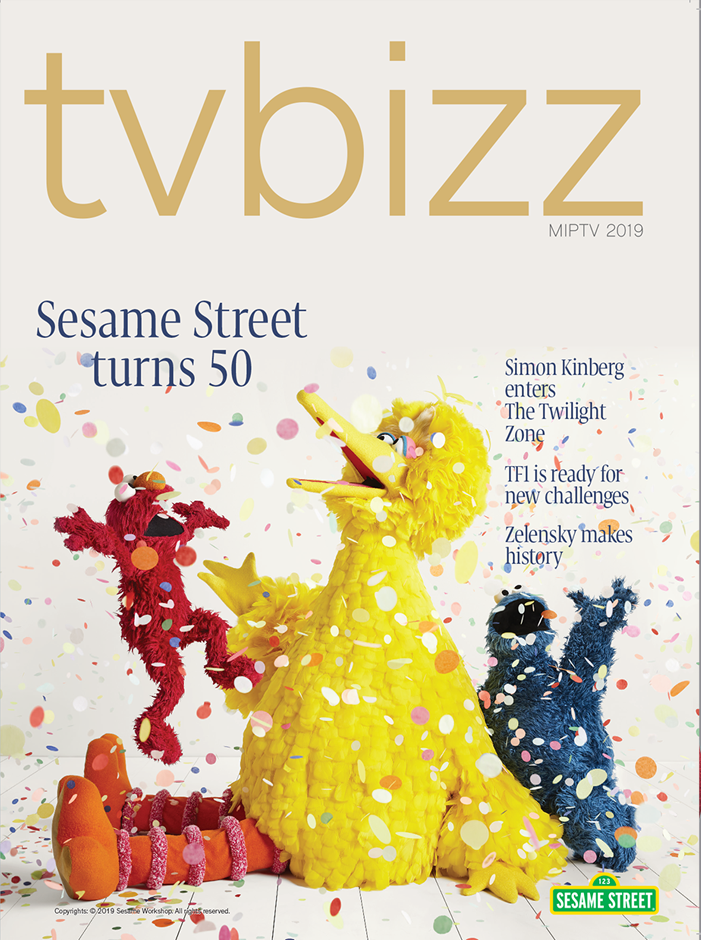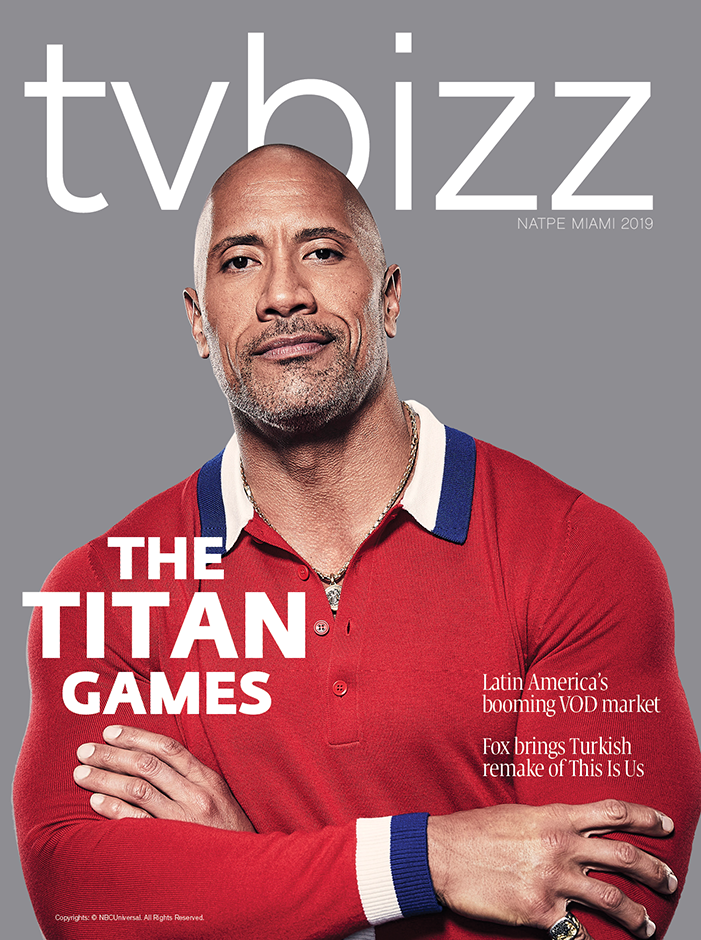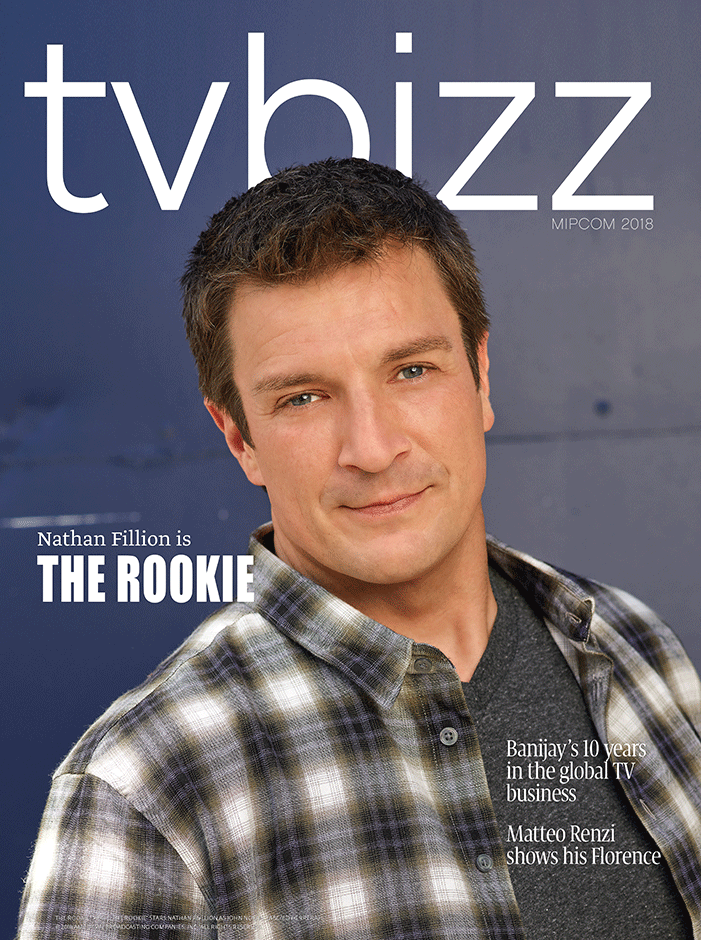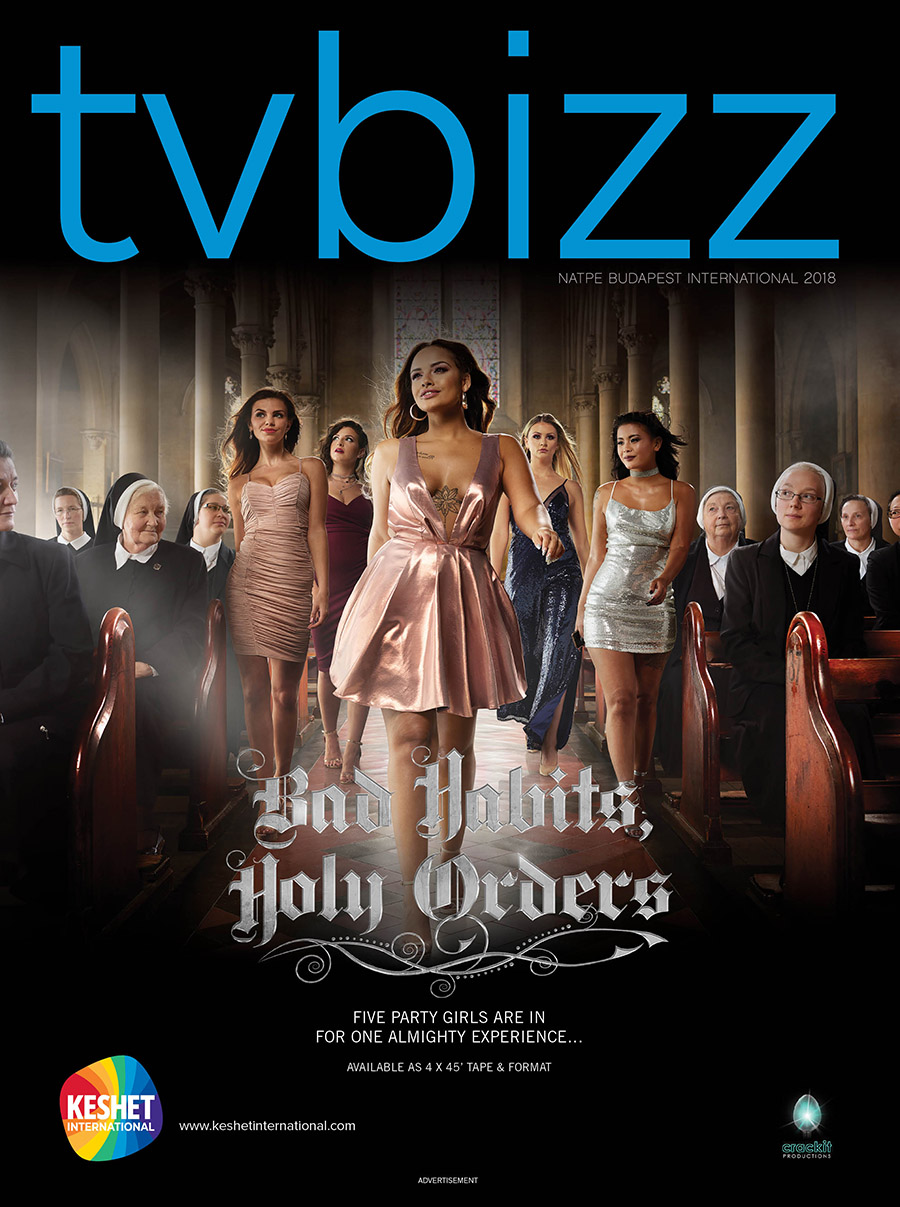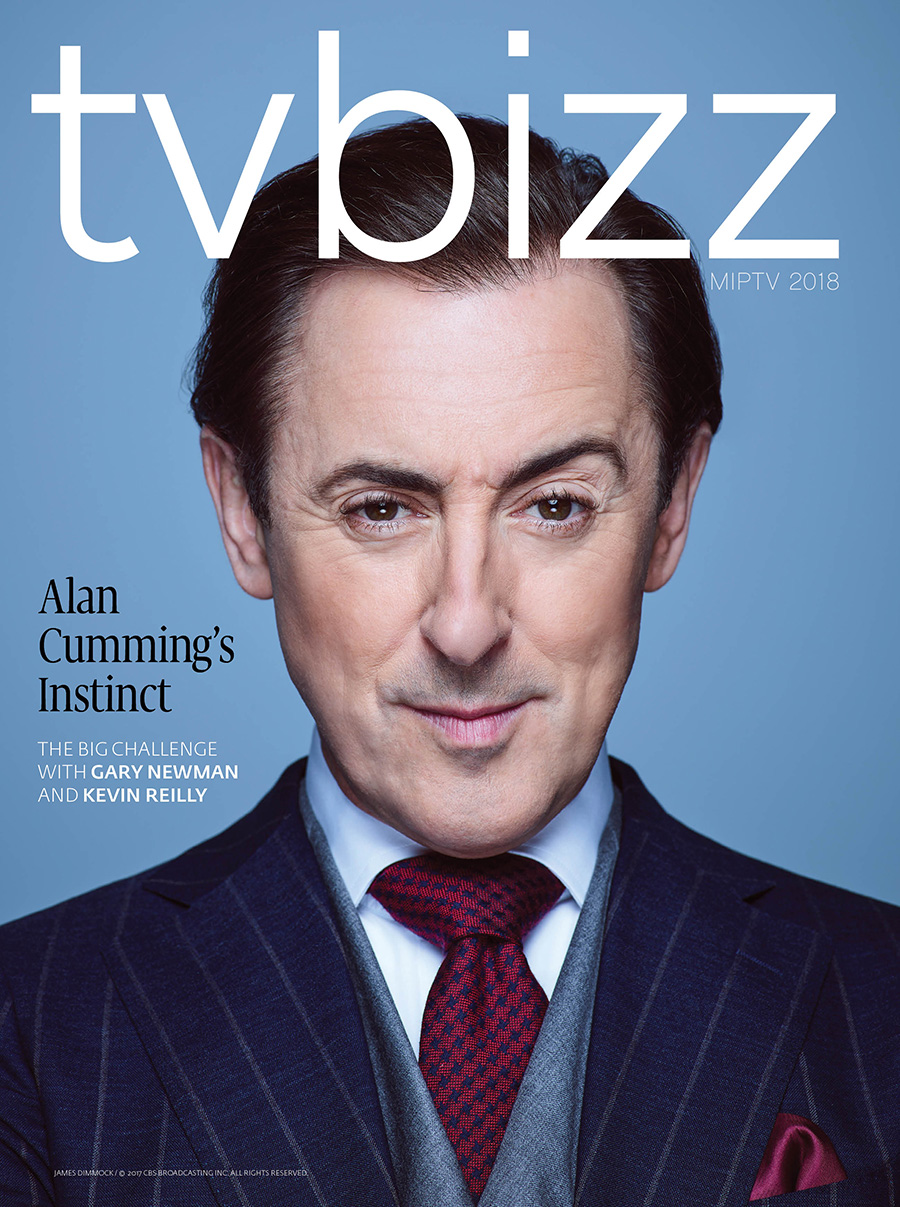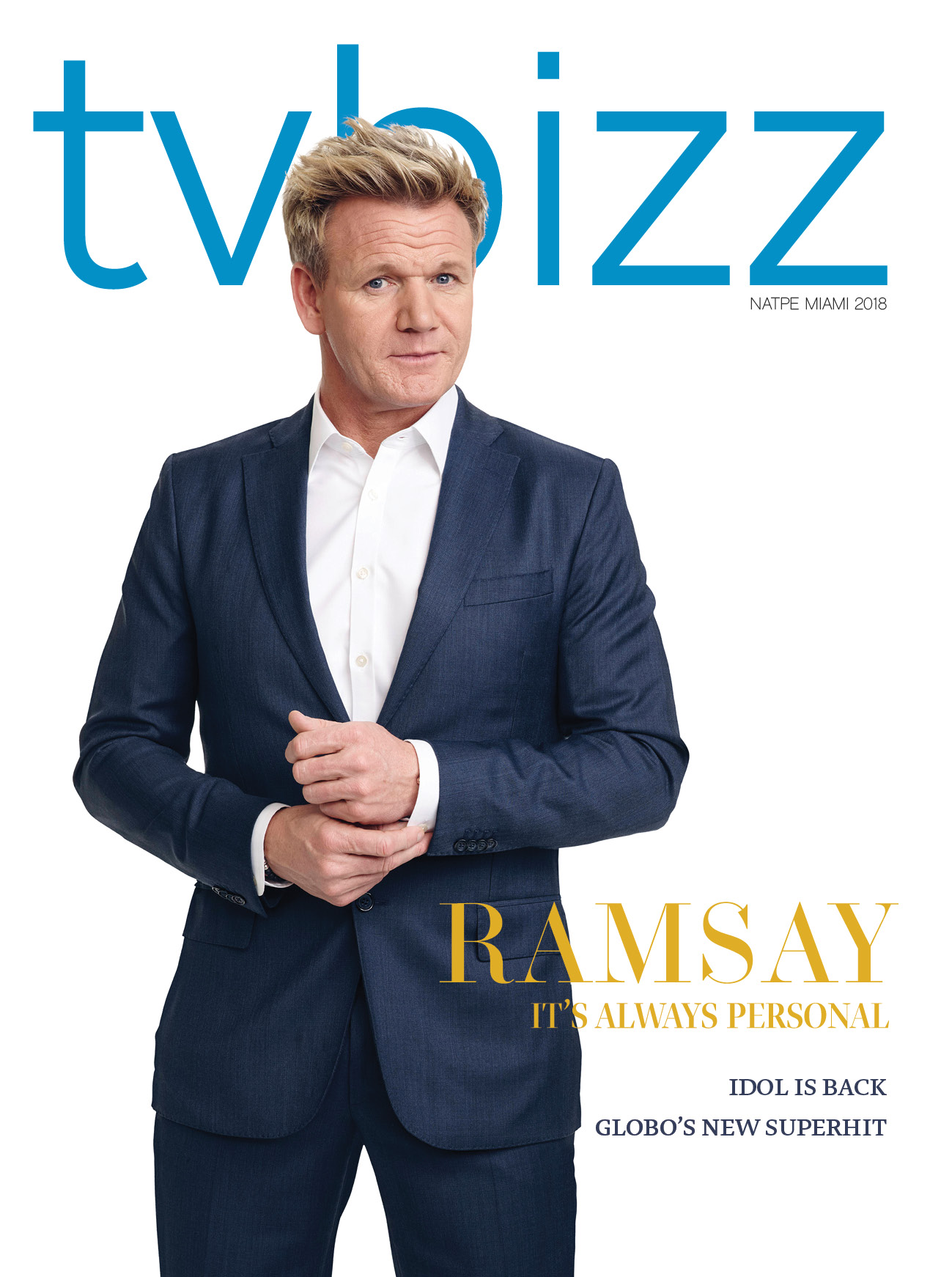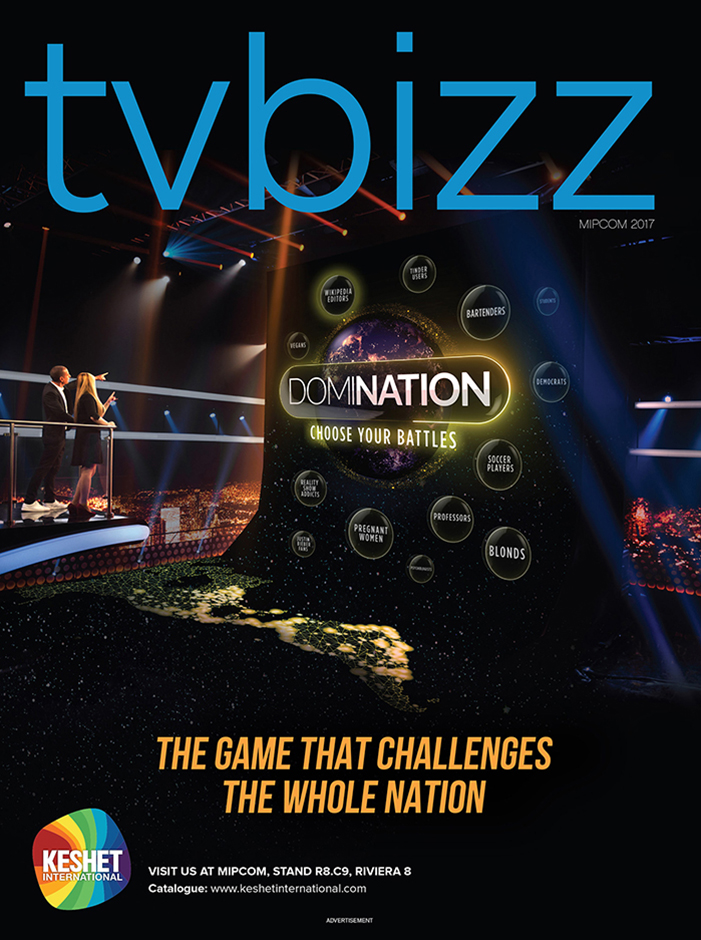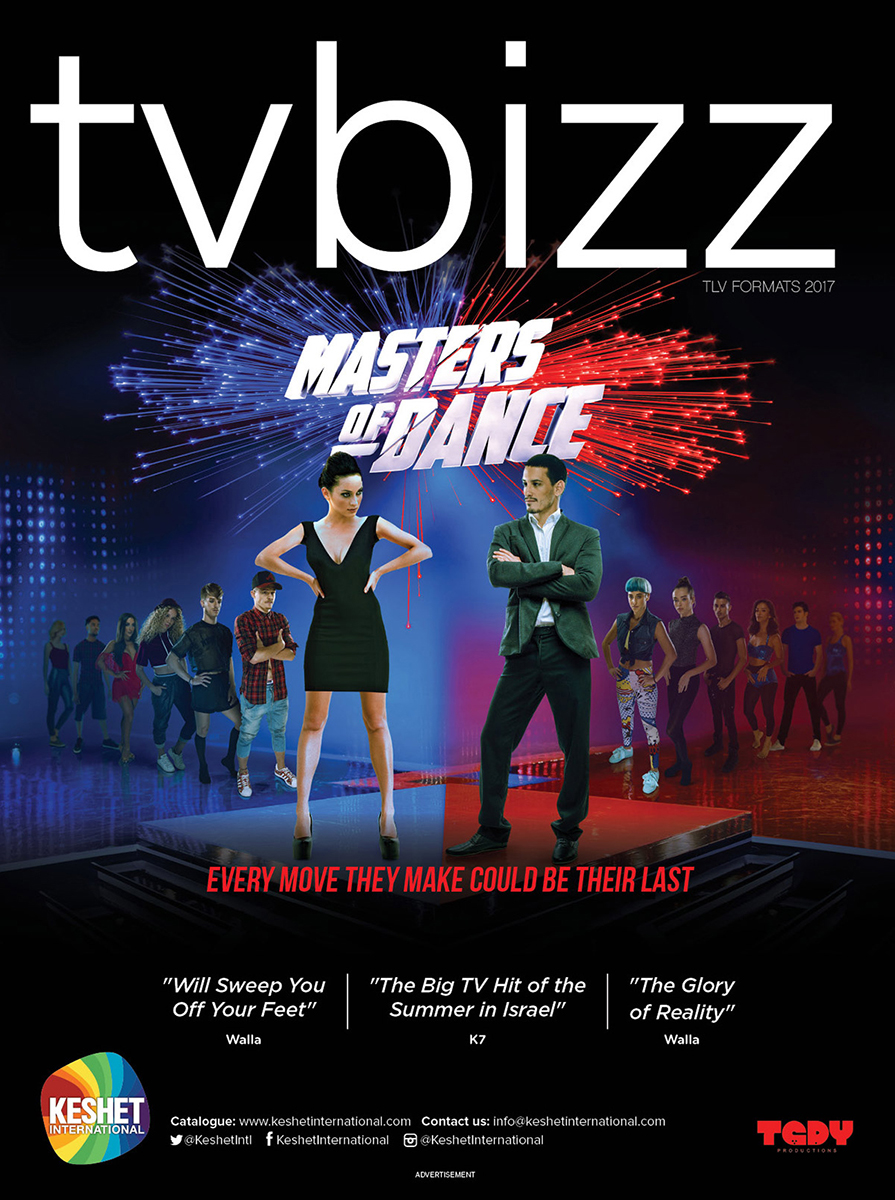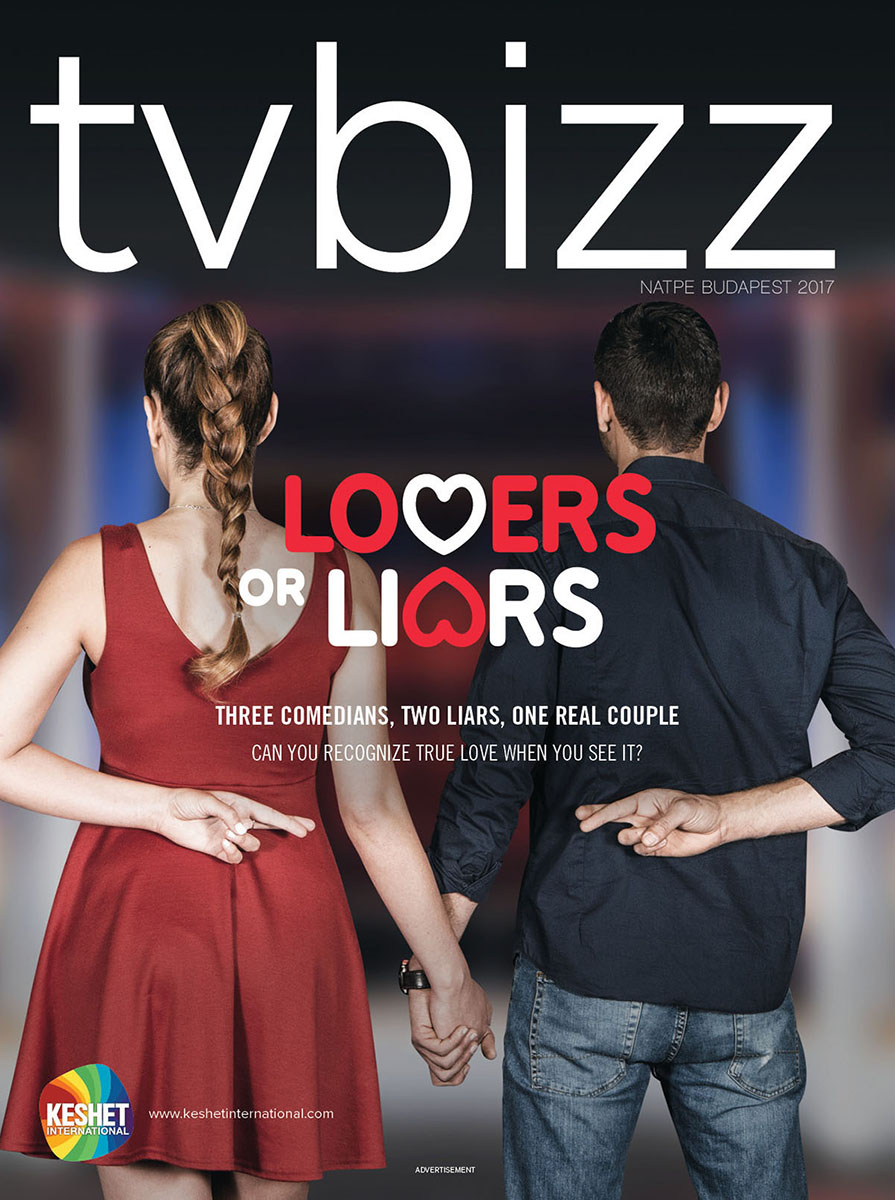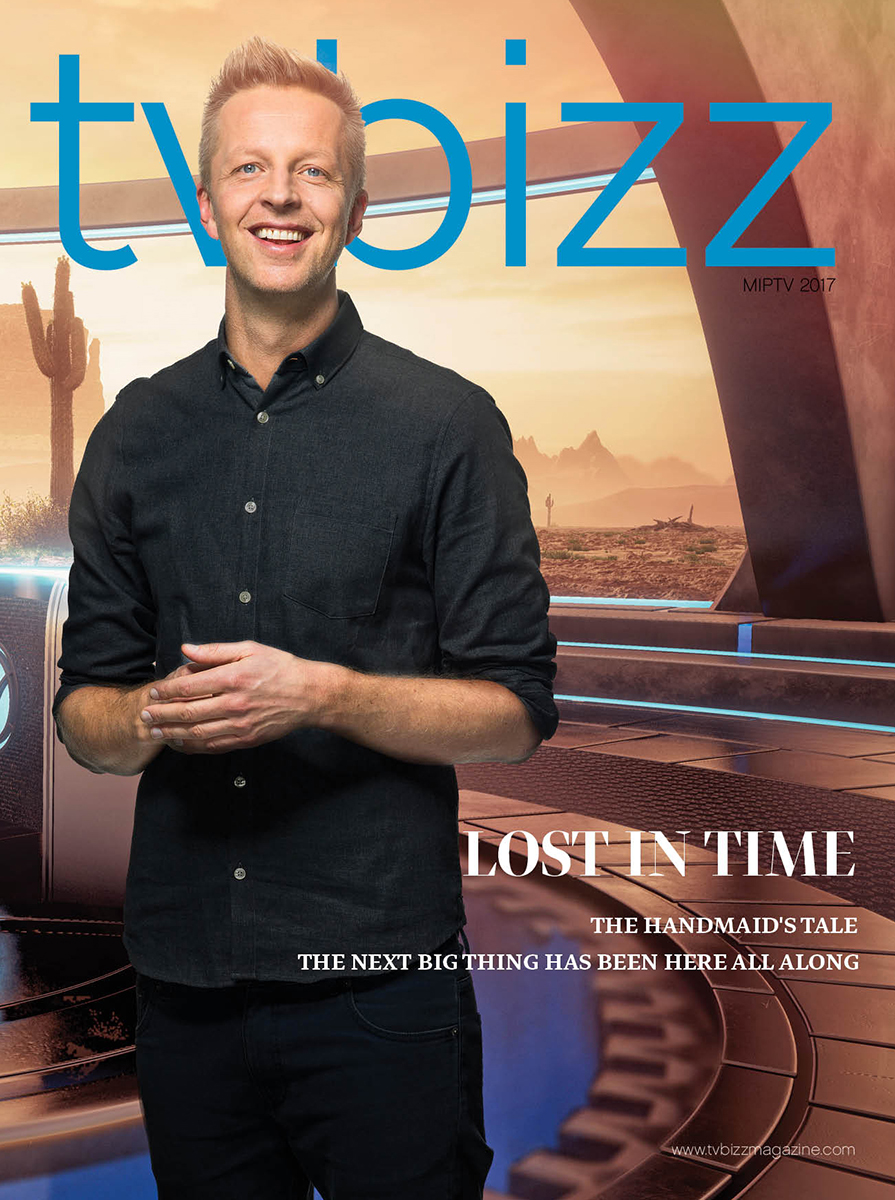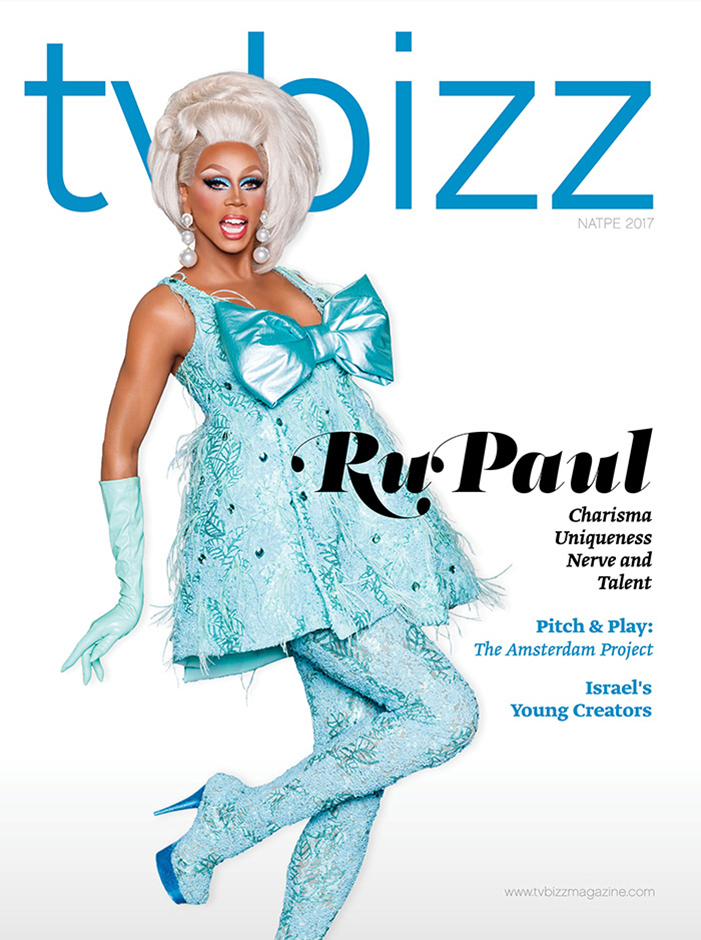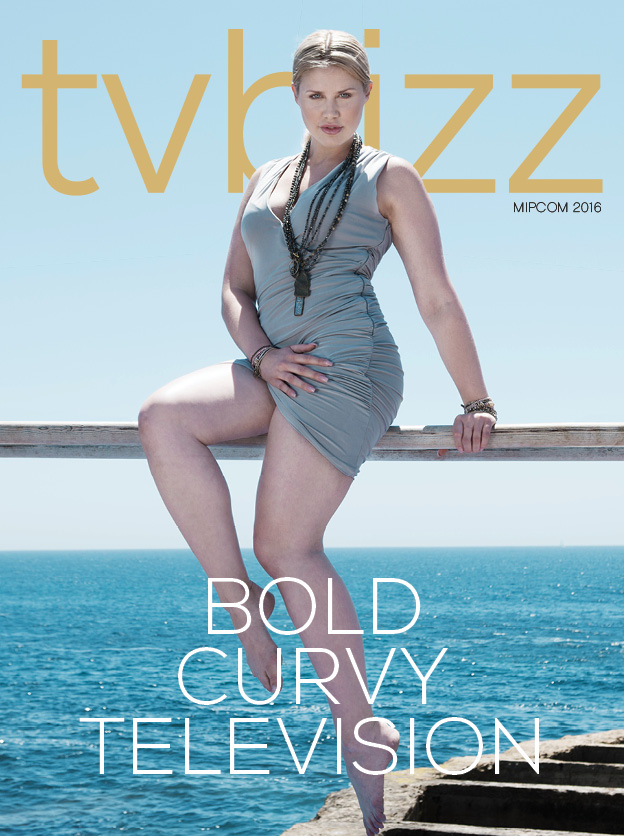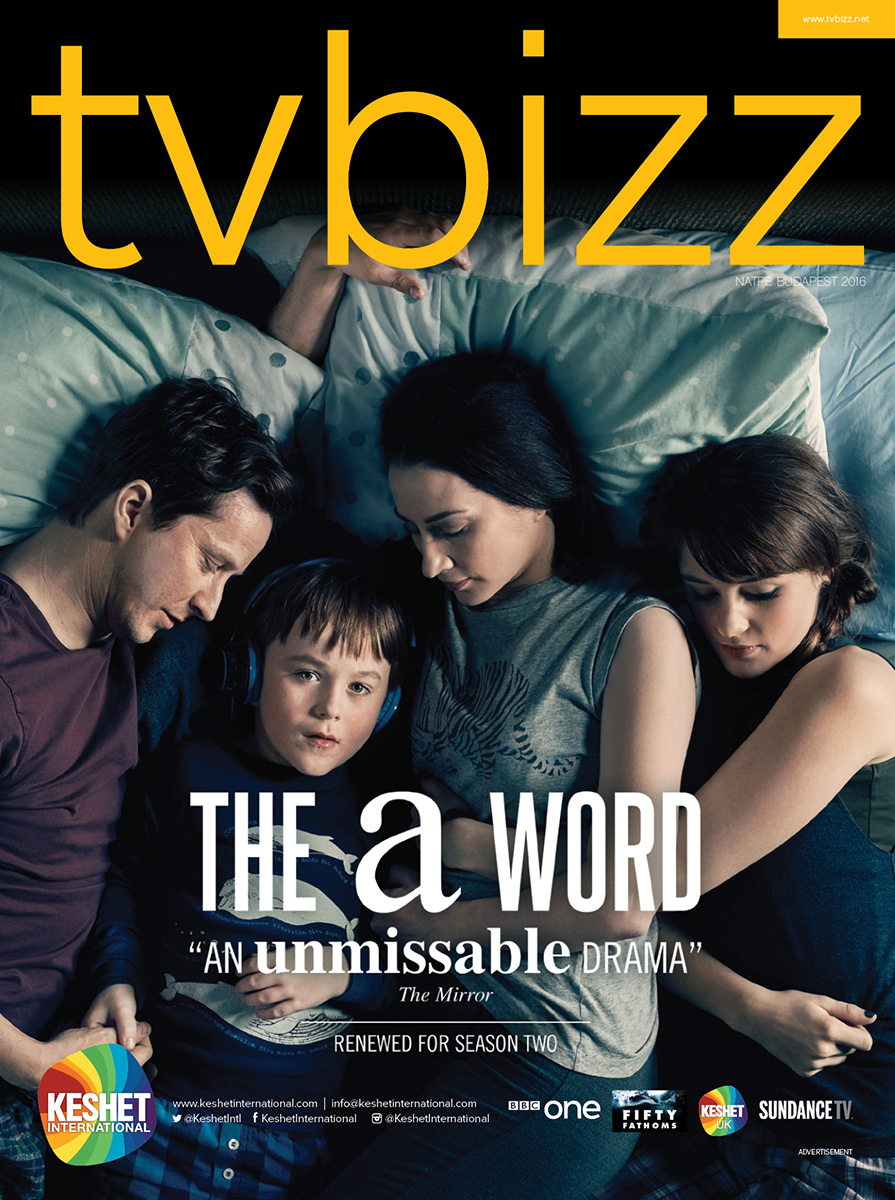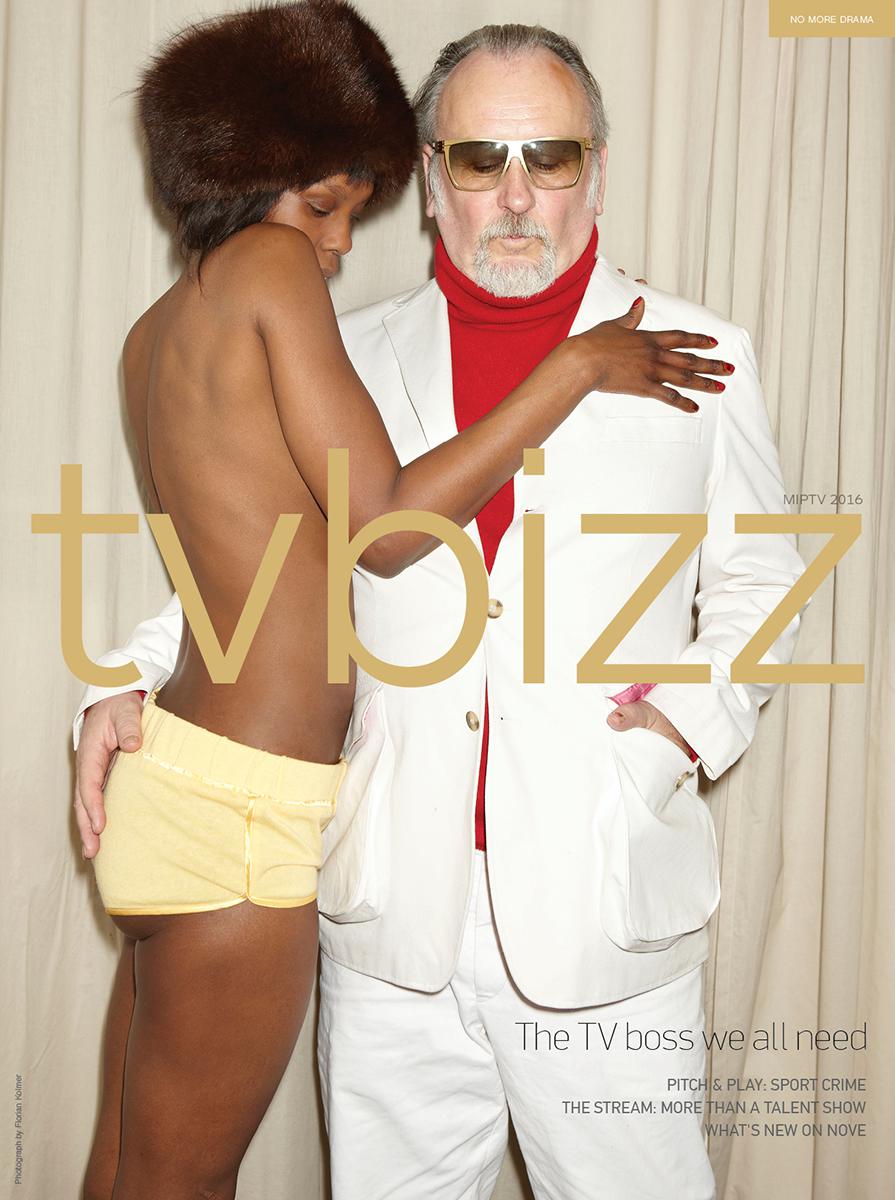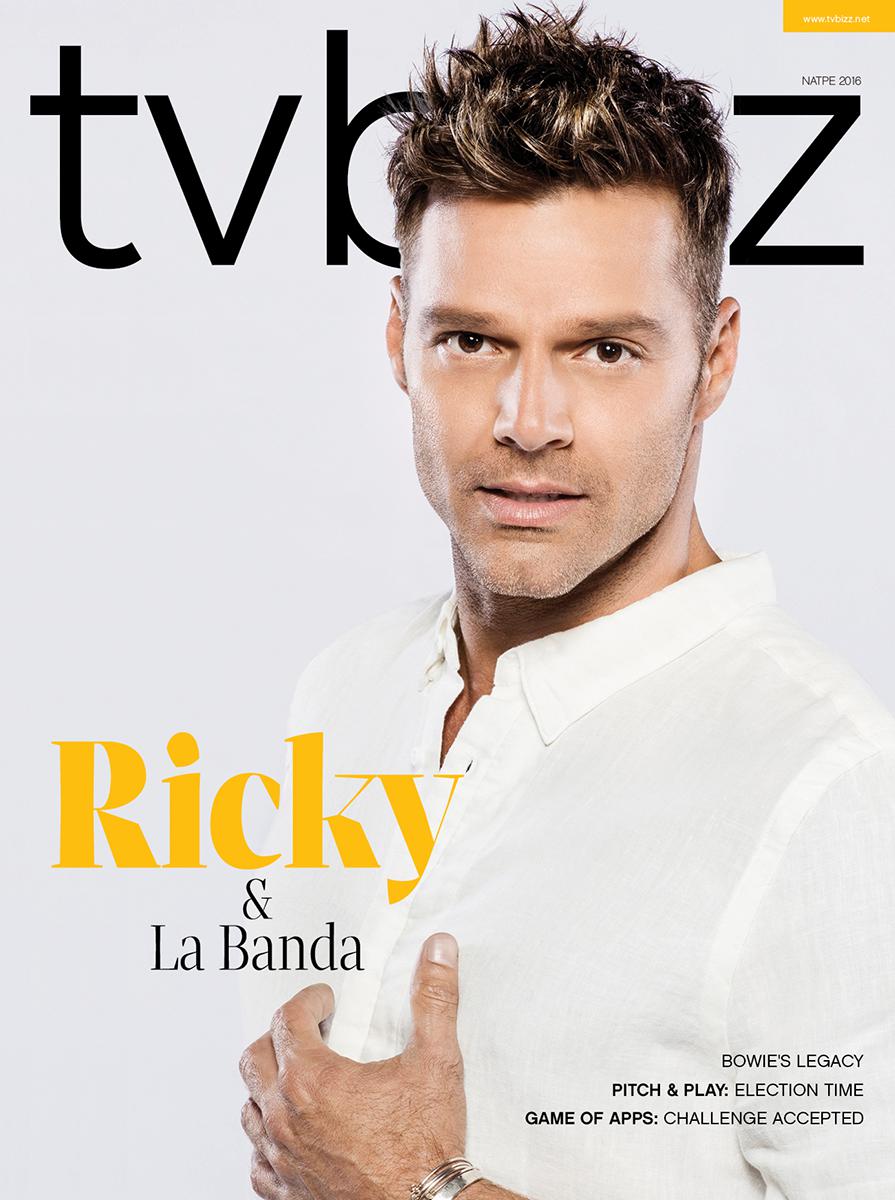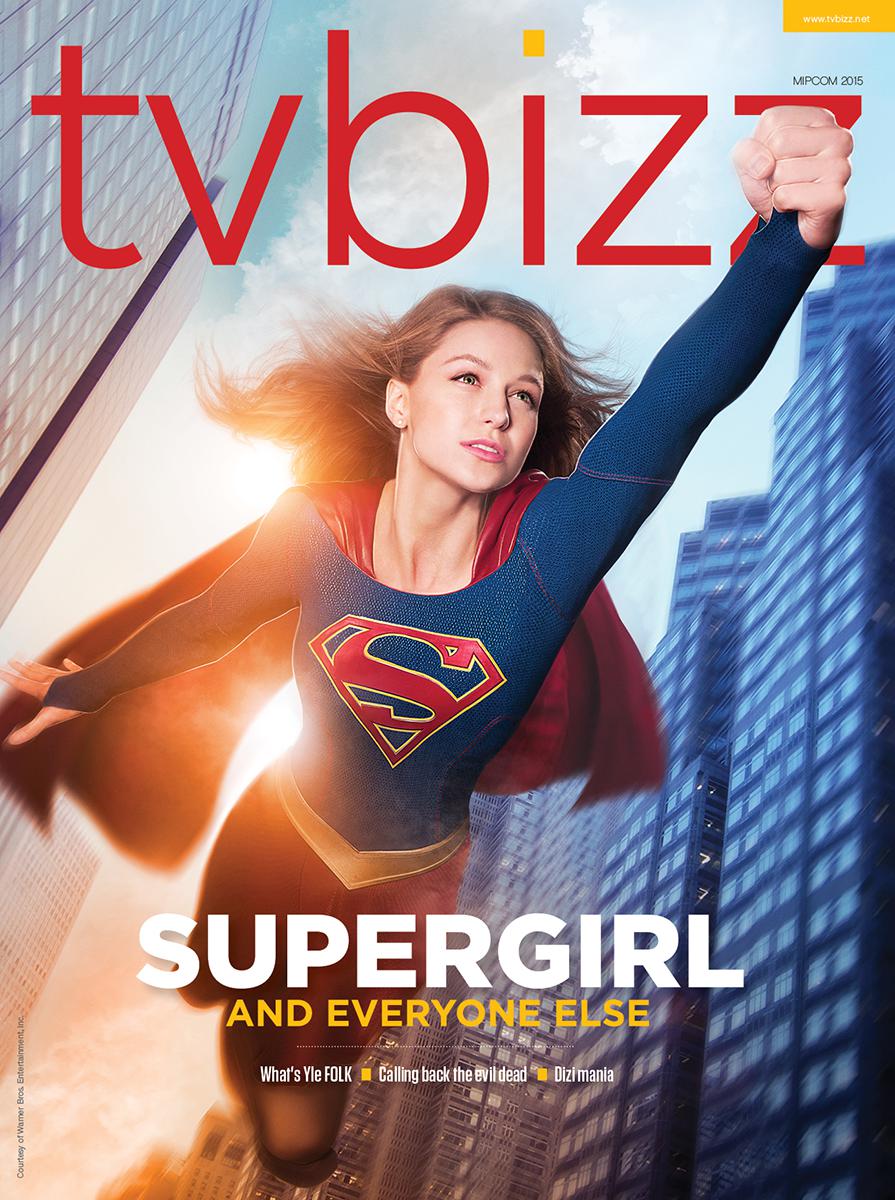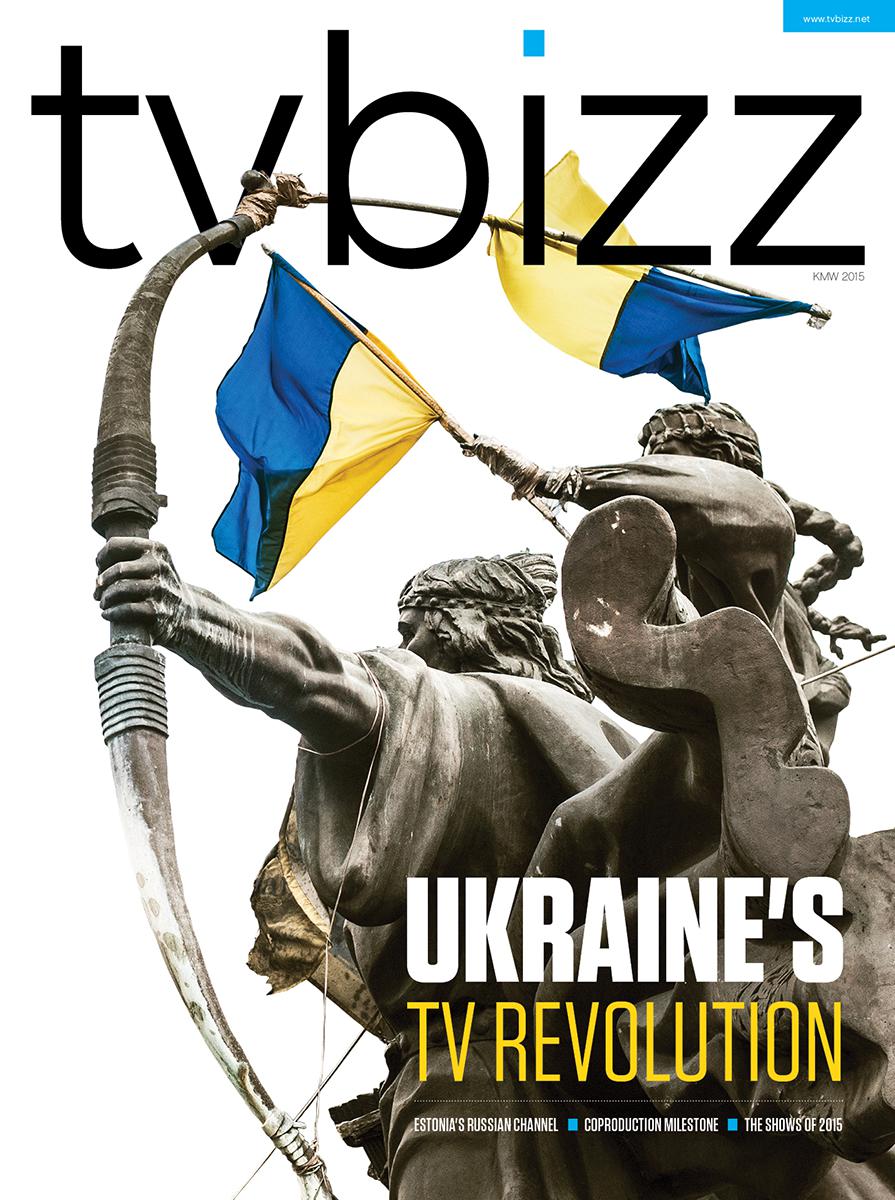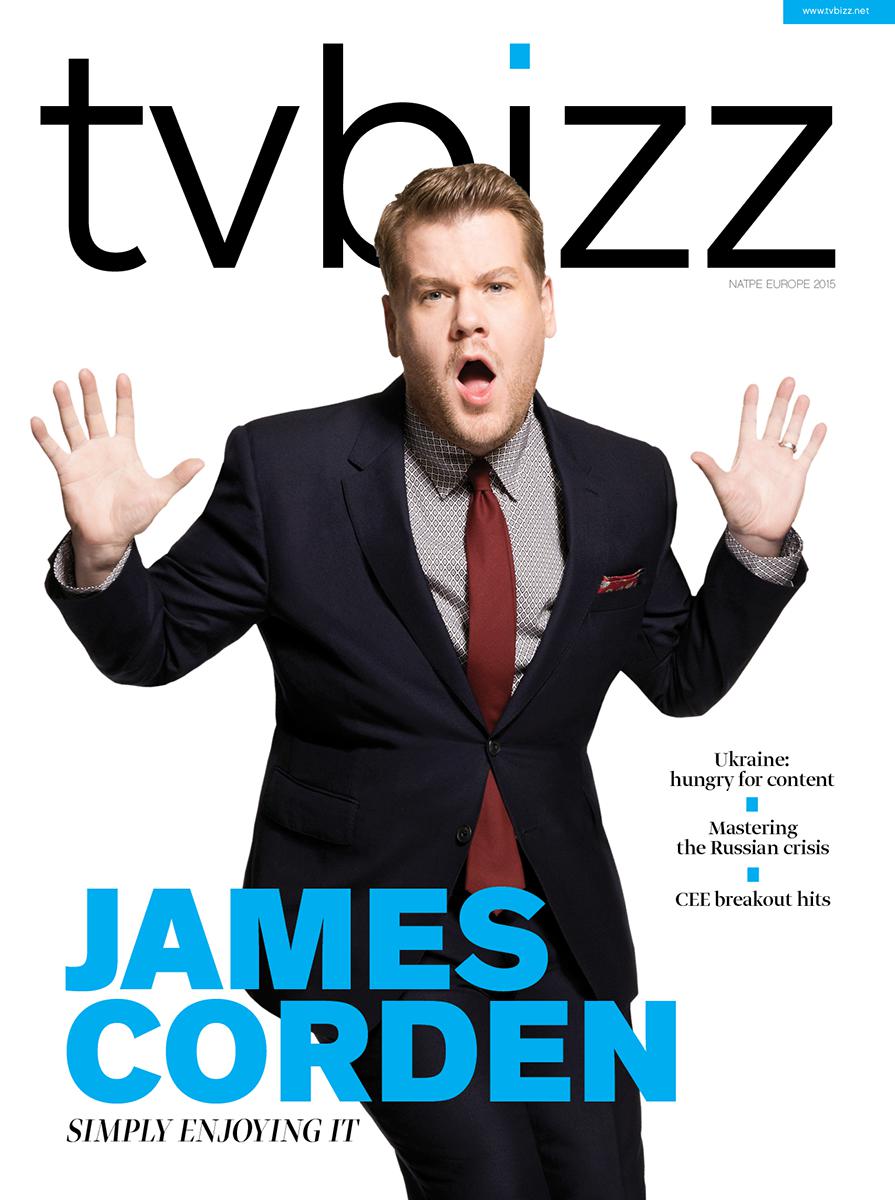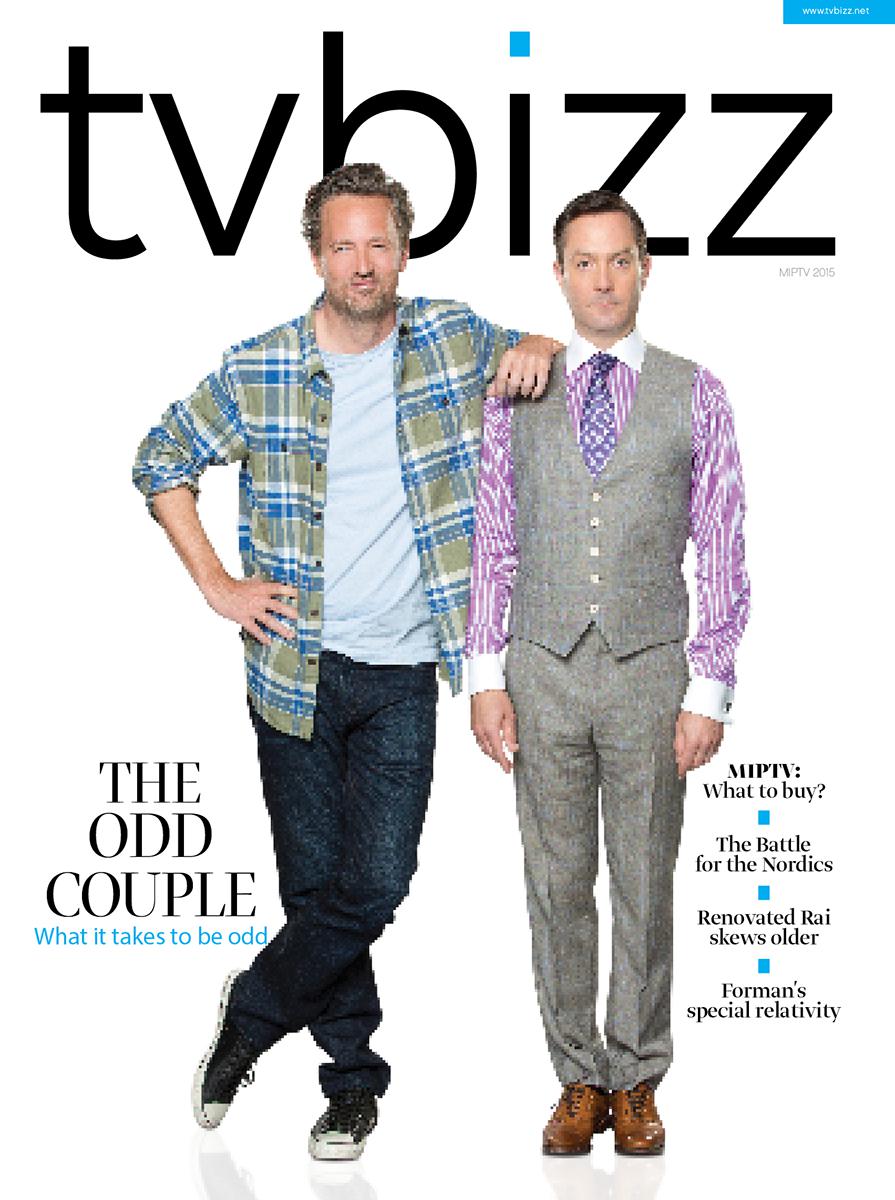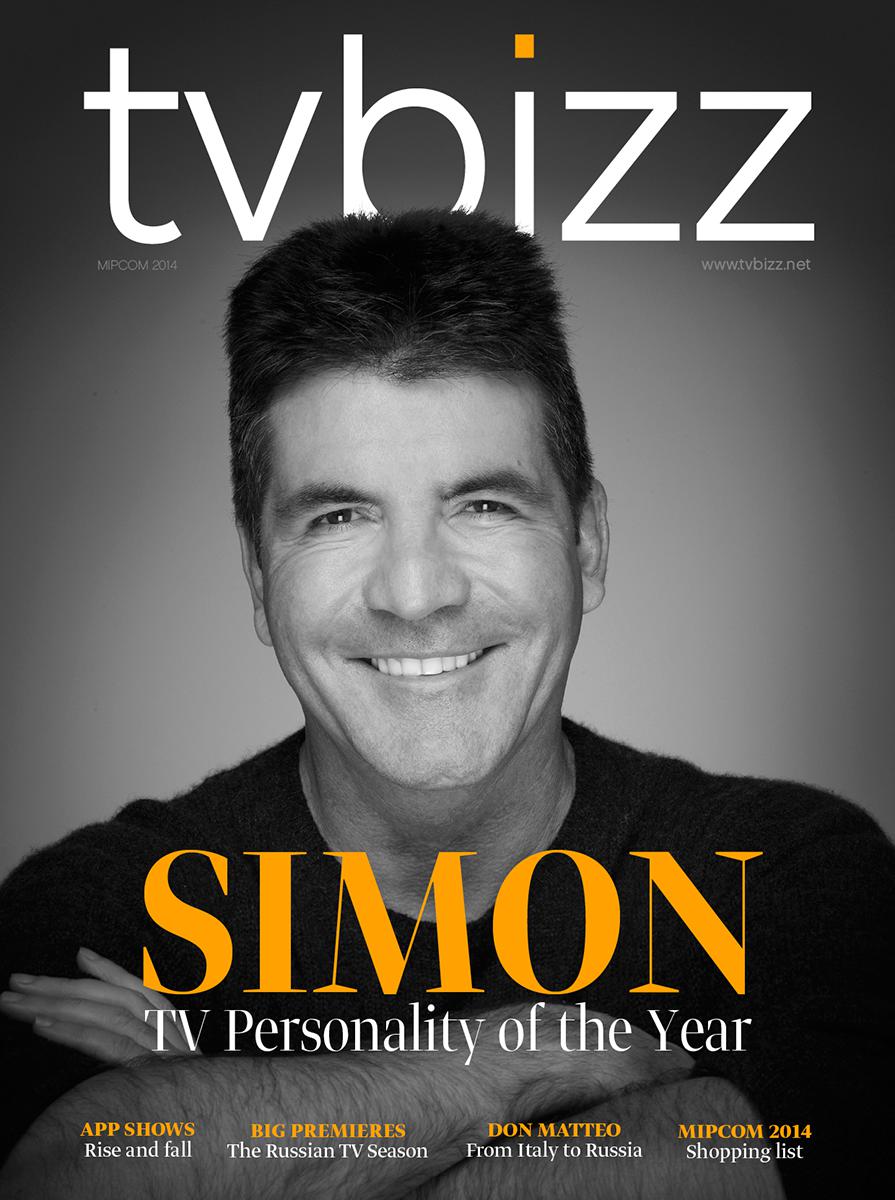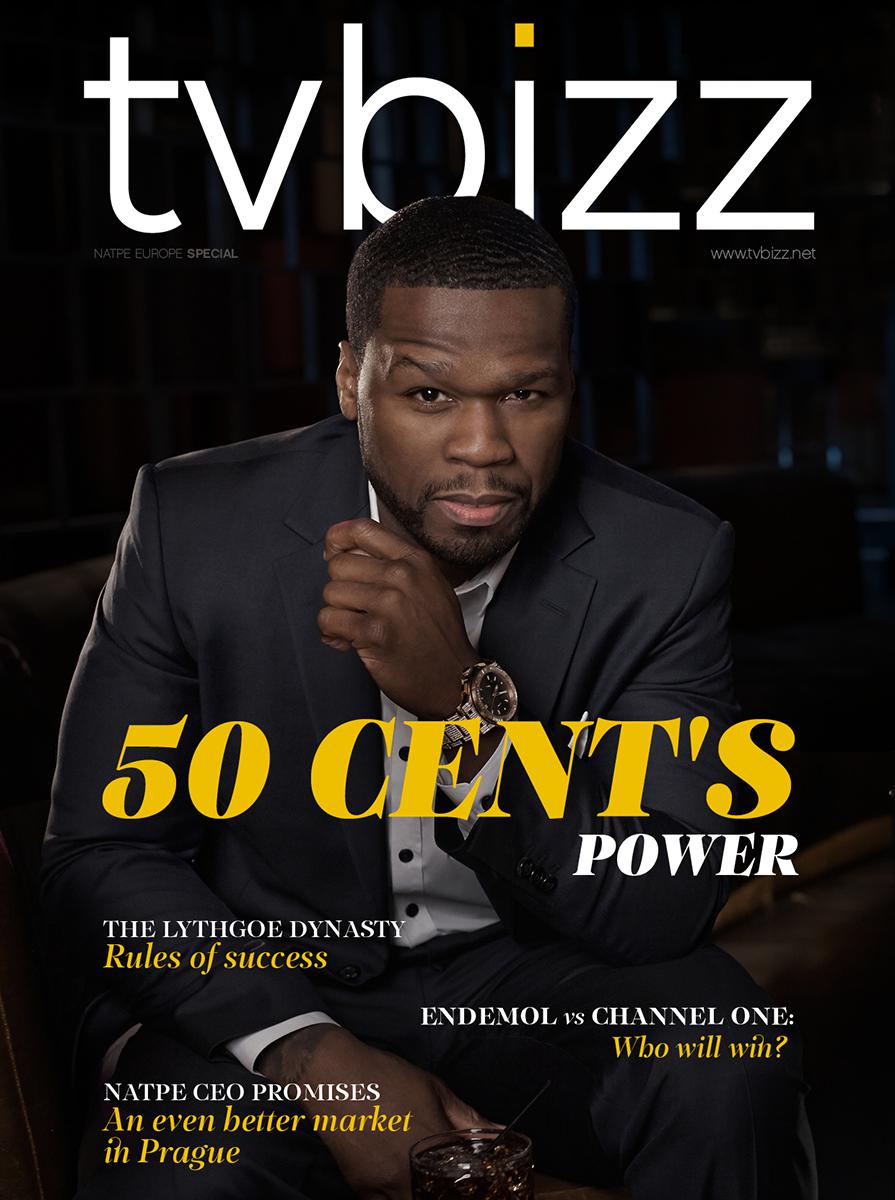Doing Business in the MENA Region in a Different Way
In March, Different Productions, led by Mazen Laham, celebrated its tenth anniversary. During that period, the company became one of the leading independent producers in the MENA region specializing in non-scripted content, with a portfolio spanning international mega-hit Dubai Bling, and regional audience magnets It’s OK and Shark Tank Dubai, to name a few.
In this exclusive interview, Mr. Laham talks with Georgi R. Chakarov about the company’s success, the challenges of working on the Arab market and the prospects and “different” plans for the future of Different Productions.
In this exclusive interview, Mr. Laham talks with Georgi R. Chakarov about the company’s success, the challenges of working on the Arab market and the prospects and “different” plans for the future of Different Productions.
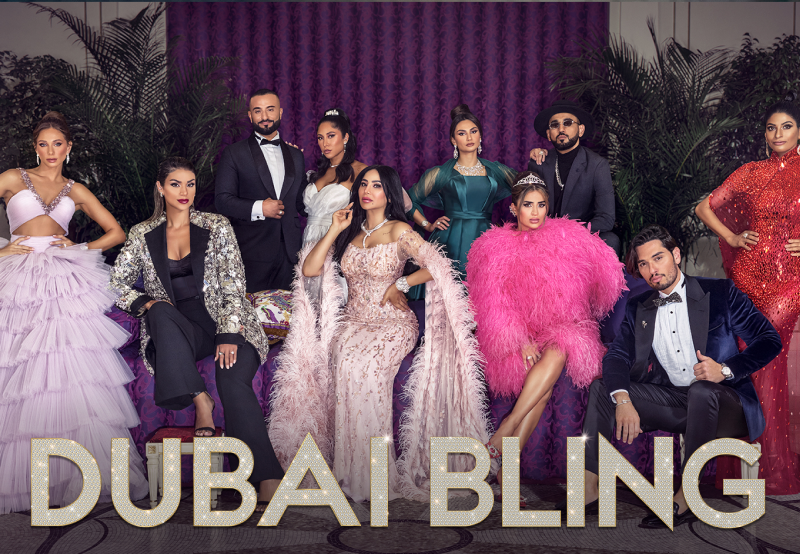
Mazen, you are the CEO of Different Productions, an award-winning media independent production, distribution and consultancy company in the MENA region. Could you tell us a bit more about yourself and your business activities?
In March, we celebrated the tenth anniversary since the launch of the company. I personally started my career in 2019 and I was in different roles: segment director, assistant director, and assistant and executive producer. In 2014, I started Different Productions which was my dream; the dream to have a production house Different from the others by producing high-quality shows with high production value. It wasn’t easy to penetrate the market at the start, but now after 10 years I can say that we are one of the leading production companies in our region and we are producing content that is trending globally, like Dubai Bling on Netflix. Another hit we have right now on Netflix is It’s OK – it’s a docu series about the famous Lebanese singer Elissa.
We are based in Dubai, Lebanon, and soon we will have a branch in Saudi Arabia, and we are mainly specialized in non-scripted shows.
Who are your main clients?
We produce for international platforms and local platforms and broadcasters such as Netflix, Discovery+, Starzplay, Shahid, MBC, Dubai TV, Abu Dhabi TV, Comedy Central, Saudi TV... We are doing Shark Tank Dubai for Dubai TV which is coming back with a second season. Today we finished filming Dubai Bling Season 3 for Netflix. We have also produced lots of international formats for our local broadcasters. We produced Chopped and Astronauts for Dubai TV, and also Stand-Up Sketch Show for Shahid (MBC Group). Our portfolio also includes My Mom Cooks Better than Yours, MasterChef, The Price is Right, Say Yes to the Dress, Najem Al Saudiya, The Mall and lots of our original stand-up shows, poetry shows which aired on local channels. We are in the middle of production of the football reality show The Italian Dream in cooperation with Image Nation, Starzplay and the Italian football league Serie A.
How big is your team?
Our core team is around 11 people, but we work with lots of freelancers. For example, the production team of Dubai Bling is around 150 people, The football show counts around 120. The core team overlooks all the shows which we produce to maintain the same quality we deliver. I think per year we work with around 500 freelancers. We don’t produce that many hours per year. For example, Dubai Bling is 7 hours, but it takes 12 months to produce.
Which shows have been your biggest hits?
Dubai Bling has turned into a huge international hit, topping the Netflix charts in more than 60 countries globally. Also, Say Yes to the Dress which we did in English-Arabic for discovery+ UK and was aired on Starzplay and Amazon UK, and of course in the region Shark Tank Dubai has been quite successful. And on top of it, the docuseries It’s OK was trending on Netflix in the top 10 chart for more than a month in the MENA region.
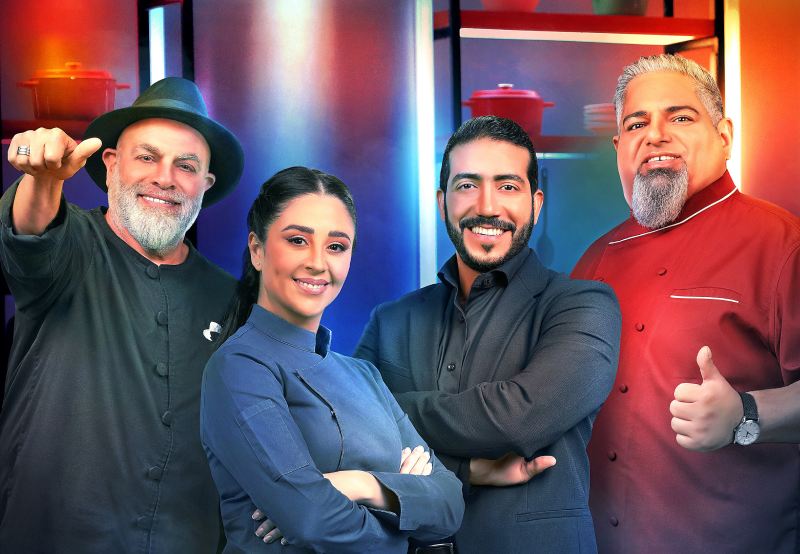
Can we say that there are differences in the taste of viewers in the Arab world and internationally, or are they similar?
To be honest, I don’t really see a big difference. We have done lots of big formats and original shows and they were trending in the region, but they were not on a platform that allows them to travel. With Netflix and international platforms, for example, if you have a good show, it will have a bigger potential to be a global hit and Dubai Bling is a good example. It’s OK did not trend globally because it features a very famous A-class artist from the region, so its audience is different and smaller.
I believe global hits can easily be regional hits, for example, The Voice is a success globally and also a hit in our region and this applies to most of the international formats. The trends are very similar. What is nice about the formats is that you have a track record to count on. For me it’s a very big challenge when you do an original than doing a format. With the format you get 70-80% of the success guaranteed and the risk is lower. You just need to do your homework properly. With originals, it’s a bigger risk, you are testing something new, and you don’t know if the recipe would work or not.
Do you have a different approach when producing shows for the platforms or channels which have quite different content policy?
Yes, each channel and platform have their own strategies and policies. We do our pitches to them based on this. With time and experience you get to understand what your clients like and dislike and what content they desire. In addition, the non-scripted content globally and in our region doesn’t exceed 20% of the content produced yearly which also makes it even more challenging. But I believe, non-scripted is going to grow in the coming years because platforms have started discovering that there is a very big potential in the non-scripted.
Yes, for many years the Arab market was known just for scripted content, but your success with introducing the genre proves that non-scripted is growing in the region…
Exactly… it took us time. I started working with terrestrial broadcasters in Lebanon and then came the era of satellites, so all of a sudden, we were working for the whole region and we had to adapt because we were targeting different audiences, in Saudi Arabia, Dubai, Egypt, and it is so different. Later on, we got the transition from linear to non-linear and then again it took us time to adapt– for example, at the start we had lots of refusals on our pitches from Netflix before landing a commission, maybe more than ten. That was mostly because we were pitching content that works for classical TV channels rather than non-liner platforms and it took us time to understand, adapt and learn, but now I can say that we know exactly what works for platforms and what works for TV channels. There is always a learning curve and we need to adapt as we go or else we will be out of the market.
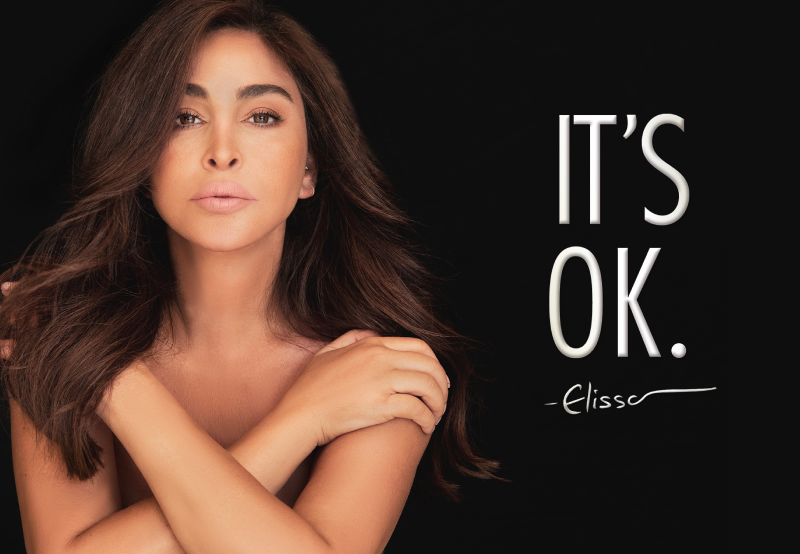
We are now in the Ramadan period, and we know that this is the time the biggest volume of new shows is being launched; so, is there a difference in the commissioning policy for Ramadan and let’s call it the regular season?
Until now, we have not done any show for Ramadan, but definitely there is a difference because any show must fill 30 days in the schedule, and it should be more culturally sensitive and also Ramadan is much more focused on scripted...
What happens after Ramadan, after this boom of watching television? Do people get tired of it and take a break? How does that affect the planning, the productions?
It depends on when Ramadan is during the year – when it is in May and June it is considered a low season, and you can have up to five months of not releasing new content. This year, because it’s April, we will be back with a regular season, but you usually don’t see many premieres after Ramadan.
Have you considered shooting a series?
The idea of doing this has been there for two years, but we are still “cooking” it, because we want to do it properly. One wrong step in scripted could even affect what we have done in the non-scripted, we need to be careful in any step. But we definitely would want to do movies and series soon.
Are you working on new projects?
Yes, we have several in the pipeline. We just finished filming Dubai Bling and now we have the football reality show The Italian Dream in the making and we will be filming Shark Tank after Ramadan. We don’t focus a lot on the volume of the shows or the quantity because we are very quality-oriented, and we want to maintain that. We don’t produce lots of shows because we don’t want to start losing the quality we deliver and we insist on being different, and that is why we are called Different Productions, we do things in a different way.
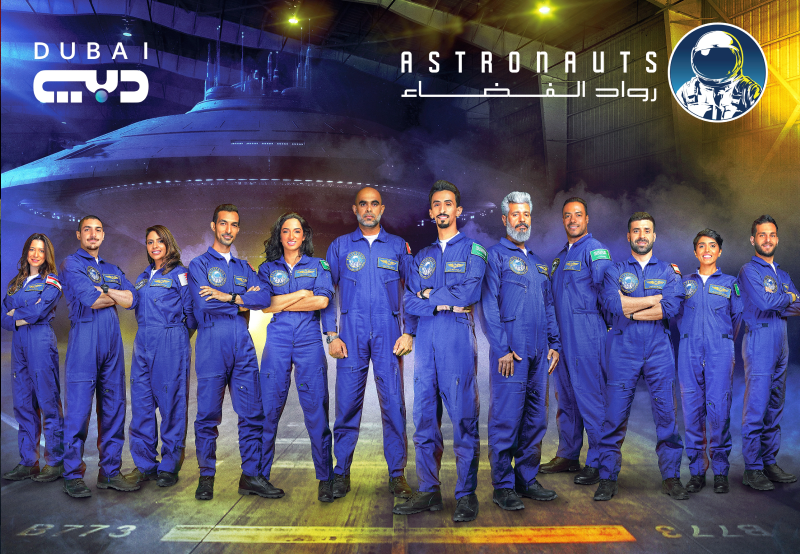
What original formats have you produced?
Besides Dubai Bling and It’s OK, we have done the talent signing competition show Saudi Star for Saudi TV SBC, the music travel show Notet Wasel for Abu Dhabi TV where a music composer travels to city and tours locations related to music and at the end of the episode he does fusion music with the hosting musician from each country. We also produced The Mall in which the contestants have to survive in a very luxurious shopping mall without money, food, housing … We filmed it in Saudi Arabia. In addition, we filmed local poetry shows and race competitions shows and many others.
Have you considered licensing your formats internationally?
It is something we are aiming to do. Actually, the years are passing very fast we have lots of plans but not enough time to realize them all.
In March, we celebrated the tenth anniversary since the launch of the company. I personally started my career in 2019 and I was in different roles: segment director, assistant director, and assistant and executive producer. In 2014, I started Different Productions which was my dream; the dream to have a production house Different from the others by producing high-quality shows with high production value. It wasn’t easy to penetrate the market at the start, but now after 10 years I can say that we are one of the leading production companies in our region and we are producing content that is trending globally, like Dubai Bling on Netflix. Another hit we have right now on Netflix is It’s OK – it’s a docu series about the famous Lebanese singer Elissa.
We are based in Dubai, Lebanon, and soon we will have a branch in Saudi Arabia, and we are mainly specialized in non-scripted shows.
Who are your main clients?
We produce for international platforms and local platforms and broadcasters such as Netflix, Discovery+, Starzplay, Shahid, MBC, Dubai TV, Abu Dhabi TV, Comedy Central, Saudi TV... We are doing Shark Tank Dubai for Dubai TV which is coming back with a second season. Today we finished filming Dubai Bling Season 3 for Netflix. We have also produced lots of international formats for our local broadcasters. We produced Chopped and Astronauts for Dubai TV, and also Stand-Up Sketch Show for Shahid (MBC Group). Our portfolio also includes My Mom Cooks Better than Yours, MasterChef, The Price is Right, Say Yes to the Dress, Najem Al Saudiya, The Mall and lots of our original stand-up shows, poetry shows which aired on local channels. We are in the middle of production of the football reality show The Italian Dream in cooperation with Image Nation, Starzplay and the Italian football league Serie A.
How big is your team?
Our core team is around 11 people, but we work with lots of freelancers. For example, the production team of Dubai Bling is around 150 people, The football show counts around 120. The core team overlooks all the shows which we produce to maintain the same quality we deliver. I think per year we work with around 500 freelancers. We don’t produce that many hours per year. For example, Dubai Bling is 7 hours, but it takes 12 months to produce.
Which shows have been your biggest hits?
Dubai Bling has turned into a huge international hit, topping the Netflix charts in more than 60 countries globally. Also, Say Yes to the Dress which we did in English-Arabic for discovery+ UK and was aired on Starzplay and Amazon UK, and of course in the region Shark Tank Dubai has been quite successful. And on top of it, the docuseries It’s OK was trending on Netflix in the top 10 chart for more than a month in the MENA region.

Can we say that there are differences in the taste of viewers in the Arab world and internationally, or are they similar?
To be honest, I don’t really see a big difference. We have done lots of big formats and original shows and they were trending in the region, but they were not on a platform that allows them to travel. With Netflix and international platforms, for example, if you have a good show, it will have a bigger potential to be a global hit and Dubai Bling is a good example. It’s OK did not trend globally because it features a very famous A-class artist from the region, so its audience is different and smaller.
I believe global hits can easily be regional hits, for example, The Voice is a success globally and also a hit in our region and this applies to most of the international formats. The trends are very similar. What is nice about the formats is that you have a track record to count on. For me it’s a very big challenge when you do an original than doing a format. With the format you get 70-80% of the success guaranteed and the risk is lower. You just need to do your homework properly. With originals, it’s a bigger risk, you are testing something new, and you don’t know if the recipe would work or not.
Do you have a different approach when producing shows for the platforms or channels which have quite different content policy?
Yes, each channel and platform have their own strategies and policies. We do our pitches to them based on this. With time and experience you get to understand what your clients like and dislike and what content they desire. In addition, the non-scripted content globally and in our region doesn’t exceed 20% of the content produced yearly which also makes it even more challenging. But I believe, non-scripted is going to grow in the coming years because platforms have started discovering that there is a very big potential in the non-scripted.
Yes, for many years the Arab market was known just for scripted content, but your success with introducing the genre proves that non-scripted is growing in the region…
Exactly… it took us time. I started working with terrestrial broadcasters in Lebanon and then came the era of satellites, so all of a sudden, we were working for the whole region and we had to adapt because we were targeting different audiences, in Saudi Arabia, Dubai, Egypt, and it is so different. Later on, we got the transition from linear to non-linear and then again it took us time to adapt– for example, at the start we had lots of refusals on our pitches from Netflix before landing a commission, maybe more than ten. That was mostly because we were pitching content that works for classical TV channels rather than non-liner platforms and it took us time to understand, adapt and learn, but now I can say that we know exactly what works for platforms and what works for TV channels. There is always a learning curve and we need to adapt as we go or else we will be out of the market.

We are now in the Ramadan period, and we know that this is the time the biggest volume of new shows is being launched; so, is there a difference in the commissioning policy for Ramadan and let’s call it the regular season?
Until now, we have not done any show for Ramadan, but definitely there is a difference because any show must fill 30 days in the schedule, and it should be more culturally sensitive and also Ramadan is much more focused on scripted...
What happens after Ramadan, after this boom of watching television? Do people get tired of it and take a break? How does that affect the planning, the productions?
It depends on when Ramadan is during the year – when it is in May and June it is considered a low season, and you can have up to five months of not releasing new content. This year, because it’s April, we will be back with a regular season, but you usually don’t see many premieres after Ramadan.
Have you considered shooting a series?
The idea of doing this has been there for two years, but we are still “cooking” it, because we want to do it properly. One wrong step in scripted could even affect what we have done in the non-scripted, we need to be careful in any step. But we definitely would want to do movies and series soon.
Are you working on new projects?
Yes, we have several in the pipeline. We just finished filming Dubai Bling and now we have the football reality show The Italian Dream in the making and we will be filming Shark Tank after Ramadan. We don’t focus a lot on the volume of the shows or the quantity because we are very quality-oriented, and we want to maintain that. We don’t produce lots of shows because we don’t want to start losing the quality we deliver and we insist on being different, and that is why we are called Different Productions, we do things in a different way.

What original formats have you produced?
Besides Dubai Bling and It’s OK, we have done the talent signing competition show Saudi Star for Saudi TV SBC, the music travel show Notet Wasel for Abu Dhabi TV where a music composer travels to city and tours locations related to music and at the end of the episode he does fusion music with the hosting musician from each country. We also produced The Mall in which the contestants have to survive in a very luxurious shopping mall without money, food, housing … We filmed it in Saudi Arabia. In addition, we filmed local poetry shows and race competitions shows and many others.
Have you considered licensing your formats internationally?
It is something we are aiming to do. Actually, the years are passing very fast we have lots of plans but not enough time to realize them all.




